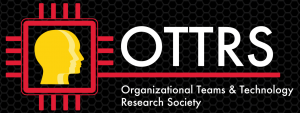Events
OTTRS Speaker Series: Interdisciplinary Knowledge Synthesis ft. Dr. Joel Chan
Event Start Date: Friday, October 28, 2022 - 12:00 pm
Event End Date: Friday, October 28, 2022 - 1:00 pm
Location: Virtual EST
Dr. Joel Chan, Assistant Professor at the University of Maryland College of Information Studies, will present on why interdisciplinary knowledge synthesis is so difficult, and describe a proposed infrastructure to assist with knowledge synthesis.
Sharing, reusing, and synthesizing knowledge is central to the research process, both individually, and with others. These core functions are in theory served by our formal scholarly publishing infrastructure, as well as individual and collaborative tools such as reference management software. But converging lines of empirical and anecdotal evidence suggest otherwise: instead of the smooth functioning of functional infrastructure, researchers resort to laborious “hacks” and workarounds to “mine” publications for what they need, and struggle to efficiently share the resulting information with others. One key reason for this problem is the privileging of the narrative document as the primary unit. The dream of an alternative infrastructure based on more appropriately granular discourse units like theories, concepts, claims, and evidence — along with key rhetorical relationships between them — has been in motion for decades, but remains severely hampered by a lack of sustainable authorship models. In this talk, I sketch out a novel sociotechnical authorship model for a sustainable discourse-based scholarly communication infrastructure. The key insight is to achieve sustainability by seamlessly integrating discourse-graph authorship work into scholars’ research and social practices, such as research idea development, literature reviewing, and reading groups. In this way, this model both draws from and augments core collaborative research processes. I will describe the grounding of this concept in formative research on scholars’ workflows, working prototypes for integrated authoring and sharing of discourse graphs, and field study insights into their promise and path towards a larger infrastructure that can make effective literature reviewing commonplace.
Biography: Joel Chan is an Assistant Professor in the University of Maryland’s College of Information Studies (iSchool) and Human-Computer Interaction Lab (HCIL). Previously, he was a Postdoctoral Research Fellow and Project Scientist in the Human-Computer Interaction Institute (HCII) at Carnegie Mellon University, and received his PhD in Cognitive Psychology at the University of Pittsburgh. His research investigates systems that support creative knowledge work, such as scientific discovery and innovative design. His long-term goal is to help create a future where innovation systems are characterized by openness and sustainability. His research has received funding from the National Science Foundation, the Office of Naval Research, the Institute for Museum and Library Sciences, Adobe Research, and Protocol Labs, and received Best Paper awards from the ASME Conference for Design Theory and Methodology, the Journal of Design Studies, and the ACM SIGKDD Conference on Knowledge Discovery and Data Mining (KDD).
What is OTTRS? The Organizational Teams and Technology Research Society (OTTRS) advances research and collaboration on multiple aspects of the study of teams relevant to technology and information, increasing relevant work both within UMD and in the Technology and Teaming community outside of UMD. This multidisciplinary networked group of researchers draws on unique areas of expertise to bridge literatures and research paradigms. We will achieve these goals via:
- developing a regional, scholarly network of interested researchers and students,
- running a speaker/seminar series of internal and external speakers,
- encouraging collaborations and learning across disciplines, and
- increasing the resources available for teams, information, and technology research and teaching.
Both radical and incremental improvements to current knowledge and practice are appreciated, as is any work on the basic to applied continuum. While we have a human focus, we are inspired by computational potential and technological advances.
